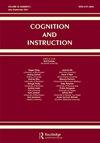恢复(和拒绝)日常生活的笛卡尔表示:当城市的移动和网格认识论相遇
IF 2.6
1区 心理学
Q2 PSYCHOLOGY, EDUCATIONAL
引用次数: 6
摘要
摘要在社区规划中,失败或富有成效的教学互动的后果可能意味着某人的房子、社区学校、公园等的保留或破坏。本文阐述了人们如何在空间认识论和权力失衡的基础上进行合作,以提出关于社区的建议和决策的一致性。本文在紧张中持有两种认识立场——移动和网格认识论——遵循基于设计的研究路线,从参与式计划会议的民族志观察开始,研究结果为青年实验教学案例的设计提供了依据。我关注的是两个充满活力和重要意义的例子,人们带着别人走过他们家乡社区的故事情节,这些故事情节在认知可公度中进进出出。基于互动和多模态分析的发现,我认为,当人们建立关系协调时,就会发生间接学习,在这种协调中,社区的新空间想象进入视野,并受到移动和网格认识论的影响。这篇文章是一个发现、分析和设计“教学”和“学习”角色处于协商或未知状态的时刻的例子,以及人们如何在充满政治色彩和脆弱的互动中相互参与。本文章由计算机程序翻译,如有差异,请以英文原文为准。
Resuscitating (and Refusing) Cartesian Representations of Daily Life: When Mobile and Grid Epistemologies of the City Meet
Abstract In community planning, the consequence of a failed or productive teaching and learning interaction could mean the preservation or destruction of someone’s house, a neighborhood school, a park, all of it. This article elucidates consistencies in how people collaborate across spatial epistemologies and power imbalances for making recommendations and decisions about communities. Holding two epistemic stances in tension—mobile and grid epistemologies—the article follows the arc of a design-based research study, beginning with ethnographic observations of participatory planning meetings, the findings from which informed the design of experimental teaching cases with youth. I focus on two vibrant and consequential instances of people walking others through a storyline of their home communities that moves in and out of epistemic commensurability. Building upon findings from interaction and multi-modal analyses, I argue that consequential learning occurred when people enacted relational attunement in which new spatial imaginaries of a community came into view and were informed by both mobile and grid epistemologies. This article serves as one instance of finding, analyzing, and designing for moments where the roles of “teaching” and “learning” are under negotiation or unknown, and how people engage with one another in politically charged and tenuous interactions.
求助全文
通过发布文献求助,成功后即可免费获取论文全文。
去求助
来源期刊

Cognition and Instruction
Multiple-
CiteScore
7.90
自引率
12.10%
发文量
22
期刊介绍:
Among education journals, Cognition and Instruction"s distinctive niche is rigorous study of foundational issues concerning the mental, socio-cultural, and mediational processes and conditions of learning and intellectual competence. For these purposes, both “cognition” and “instruction” must be interpreted broadly. The journal preferentially attends to the “how” of learning and intellectual practices. A balance of well-reasoned theory and careful and reflective empirical technique is typical.
 求助内容:
求助内容: 应助结果提醒方式:
应助结果提醒方式:


